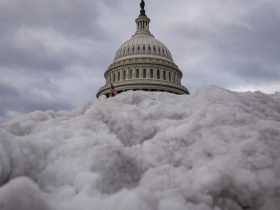Four years after Lebanon’s historic financial meltdown, the International Monetary Fund (IMF) has warned that the country continues to grapple with enormous economic challenges. The IMF issued this statement on Friday, following a four-day visit by its delegation to Lebanon. The nation’s crisis is characterized by a collapsed banking sector, eroding public services, deteriorating infrastructure, and escalating poverty levels.
The international agency acknowledged recent policy decisions by Lebanon’s central bank to cease lending to the state and discontinue operations in an exchange platform known as Sayrafa. This platform had been instrumental in controlling the spiraling black market that had dominated the Lebanese economy but was simultaneously depleting the country’s foreign currency reserves.
Despite these measures, the IMF emphasized that a permanent solution necessitates comprehensive policy decisions from both parliament and government. These should aim to contain the external and fiscal deficits and initiate the restructuring of the banking sector and major state-owned companies.
In late August, interim central bank governor Wassim Mansouri urged Lebanon’s ruling class to promptly implement economic and financial reforms. He cautioned that the central bank would not provide loans to the state or print money to cover the substantial budget deficit to avoid exacerbating inflation.
Lebanon has been engulfed in its worst economic and financial crisis in modern history since October 2019. The country’s political class, widely accused of decades of corruption and mismanagement, has been resisting economic and financial reforms demanded by the international community.
Lebanon initiated talks with the IMF in 2020 in an attempt to secure an approved bailout. Although a preliminary agreement was reached with the IMF last year, Lebanon’s leaders have shown reluctance to implement necessary reforms.
The IMF statement highlighted that Lebanon’s failure to undertake urgently needed reforms will adversely affect its economy for years to come. It also underscored that political unwillingness to make difficult but crucial decisions leaves Lebanon with an impaired banking sector, inadequate public services, deteriorating infrastructure, and worsening poverty and unemployment conditions.
Although a seasonal uptick in tourism has increased foreign currency inflows over the summer months, receipts from tourism and remittances fall significantly short of what is needed to offset a large trade deficit and a lack of external financing. The IMF recommended that all official exchange rates should be unified at the market exchange rate.
This article was generated with the support of AI and reviewed by an editor. For more information see our T&C.
Read the full article here













Leave a Reply